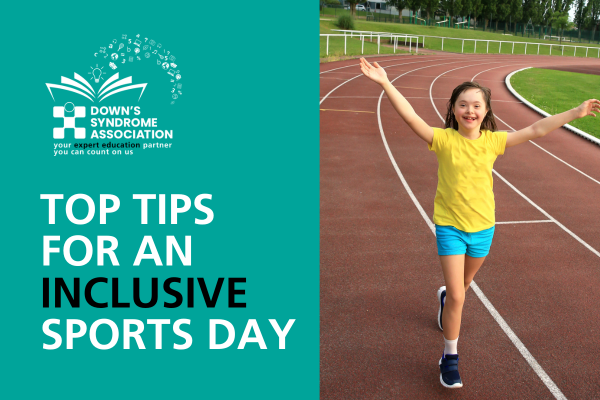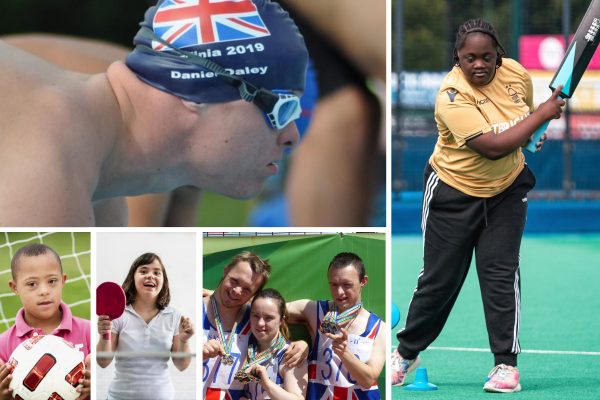Top tips for
an inclusive sports day
Start your planning with everyone in mind and consider how activities can be designed or adapted in a way that allows all children in your school to take part in a way that does not make them stand apart.
It is important to put children who are disabled/have Special Educational Needs at the heart of your planning to ensure that everyone has the chance to demonstrate their skills and teamwork.
Include pupils who are disabled/have Special Educational Needs and their families in your planning. Ask them what they have found difficult in sports day previously and what changes you could make that would make it easier for them to take part.

For further information and guidance, please see the International Guidelines for the Education of Learners with Down’s syndrome.
Start planning early. Inclusive practice takes extra time but is worth it when you manage to successfully include all pupils in your school activities.
Consider the following:
Do you need to modify equipment used to make it easier to hold/carry?
For instance lightweight balls, beanbags etc.
Do you need to provide additional equipment to enable the participation of some pupils?
For example mats to provide a more stable footing underneath for pupils who struggle with co-ordination and balance.
Do you need to modify the activity?
So instead of throwing a ball through a basketball hoop which might be challenging for a pupil who has Down’s syndrome due to their shorter stature, consider other throwing activities that do not have equipment of a fixed height.
How can you provide a range of different types of activity?
Incorporate some focusing on speed, others on stamina or
creativity for example.
The use of team activities eg partner races or relay races.
How can peers help each other to succeed?
The order of pupils in a team.
The length of gaps in between activities where pupils are
waiting.
How you will meet any medical needs during the day.
Your scoring, prizes and awards
How can everyone feel a sense of personal achievement?
Some pupils will find sports day activities overwhelming – the noise, the change in routine, crowds etc.
Consider how you might reduce sensory demands eg ear defenders.
Provide visual reminders of how to complete activities next to the activity
This will help your pupil who has Down’s syndrome recall how to do it. Alternatively, provide demonstrations just before each activity starts.
Think about how you can support the pupil who has Down’s syndrome to learn the activities prior to sports day, for example:
- Extra practice time
- Setting practice at home as homework
- Providing visual resources, eg photo instructions or watching videos of previous sports day events

Include examples or imagery of athletes and sportspeople who have Down’s syndrome in your PE lessons and when you are discussing sports day in assembly. Raise awareness in your school about disability sport and demonstrate that everyone can be successful within inclusive sports activities.
Consider allocating the pupil who has Down’s syndrome an active role when they are not taking part in activities, for instance if there are races with different year groups taking place, to ensure that they play a full part in the day and stay engaged. For example they could help collect bibs, hand out drinks or help with the timekeeping when their year group is not taking part in races or activities.
Take the learning from sports day and incorporate it into your school PE lessons and extra-curricular activities. Consider how pupils who have Down’s syndrome might be included in your school’s sports teams and how you will share their successes in school newsletters and awards.
